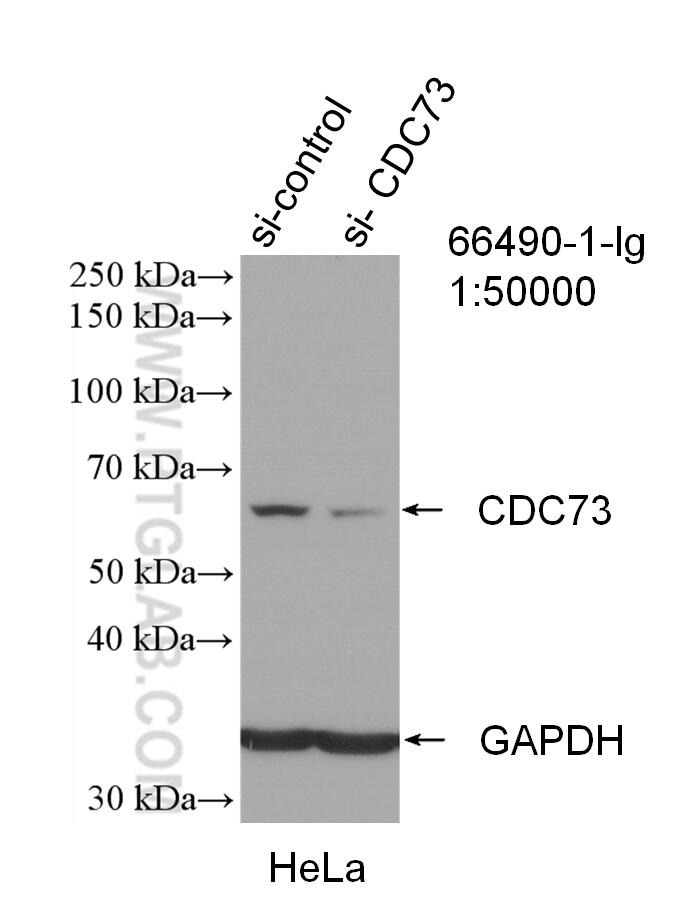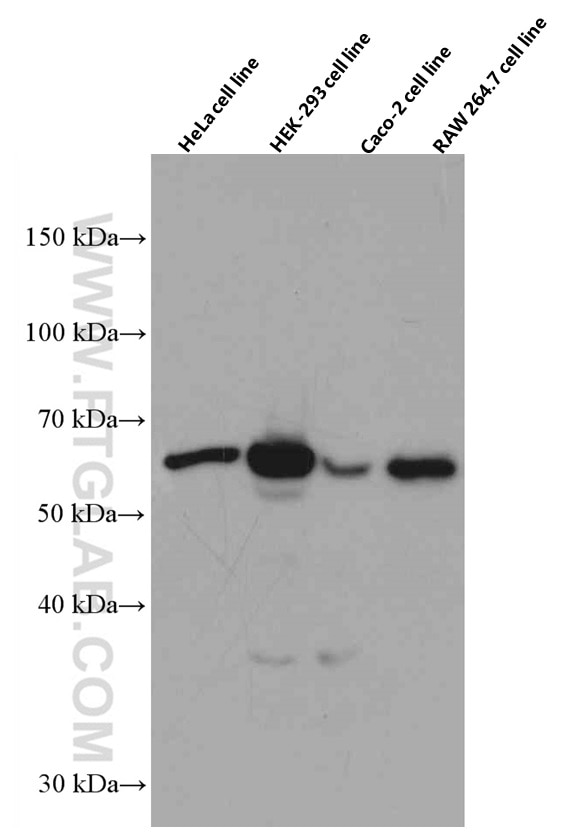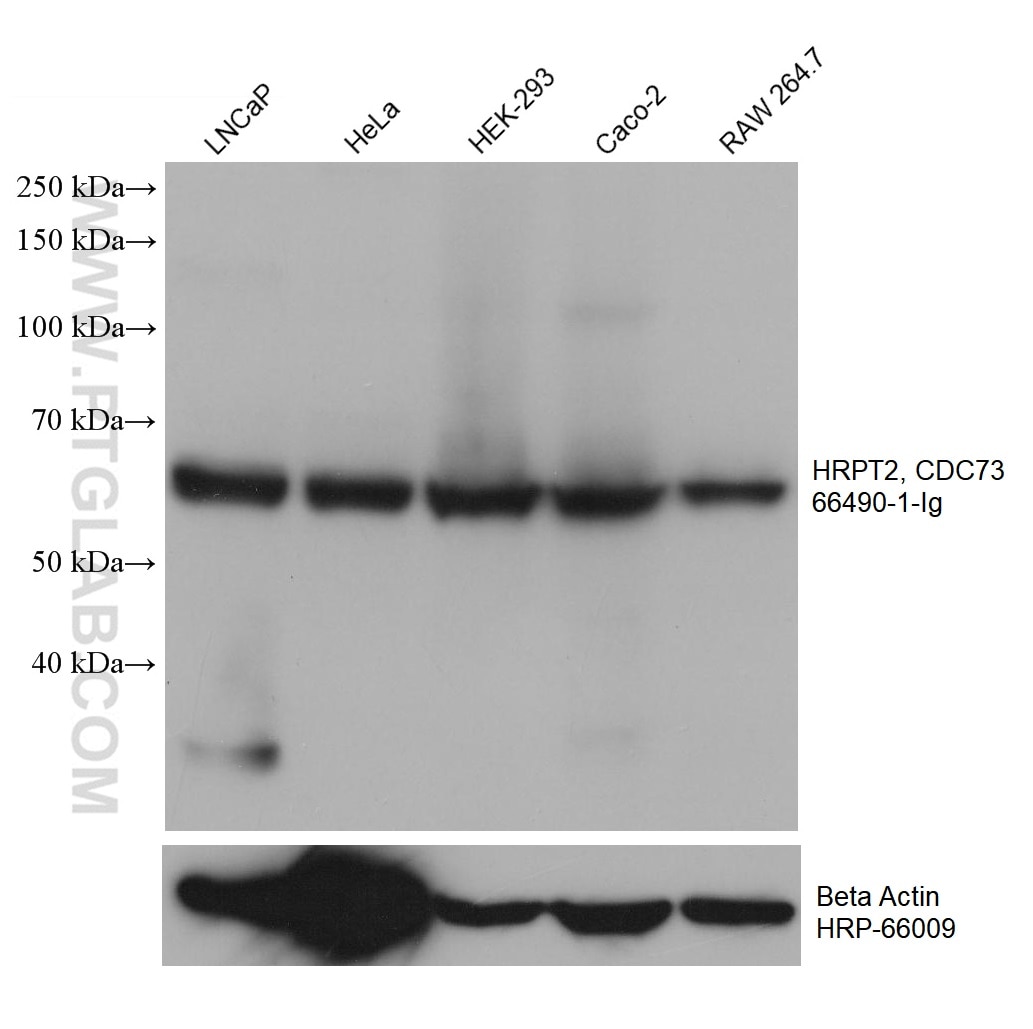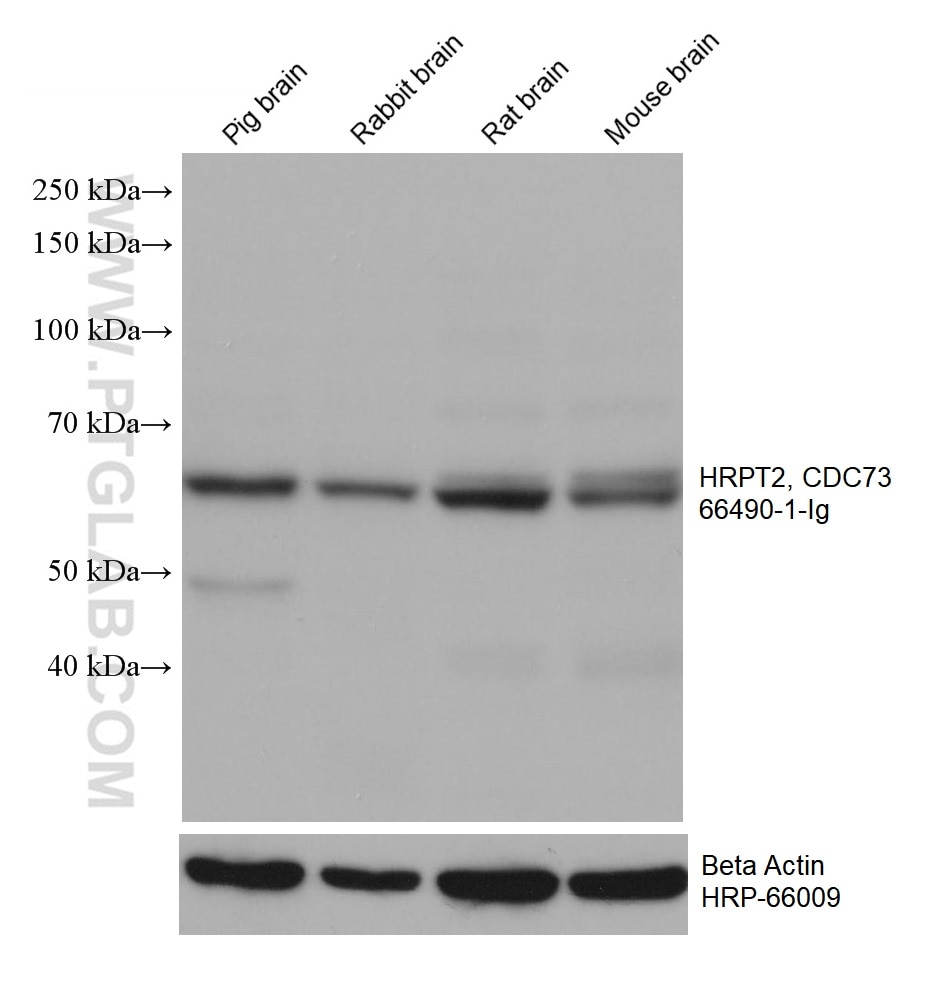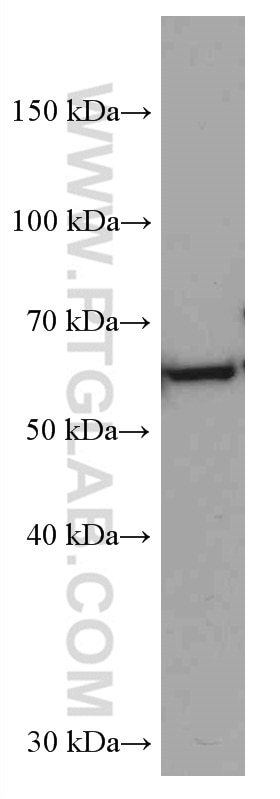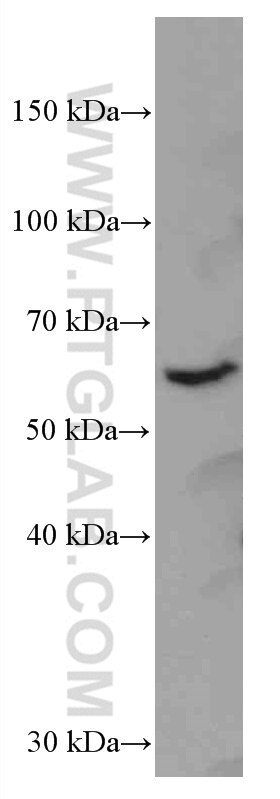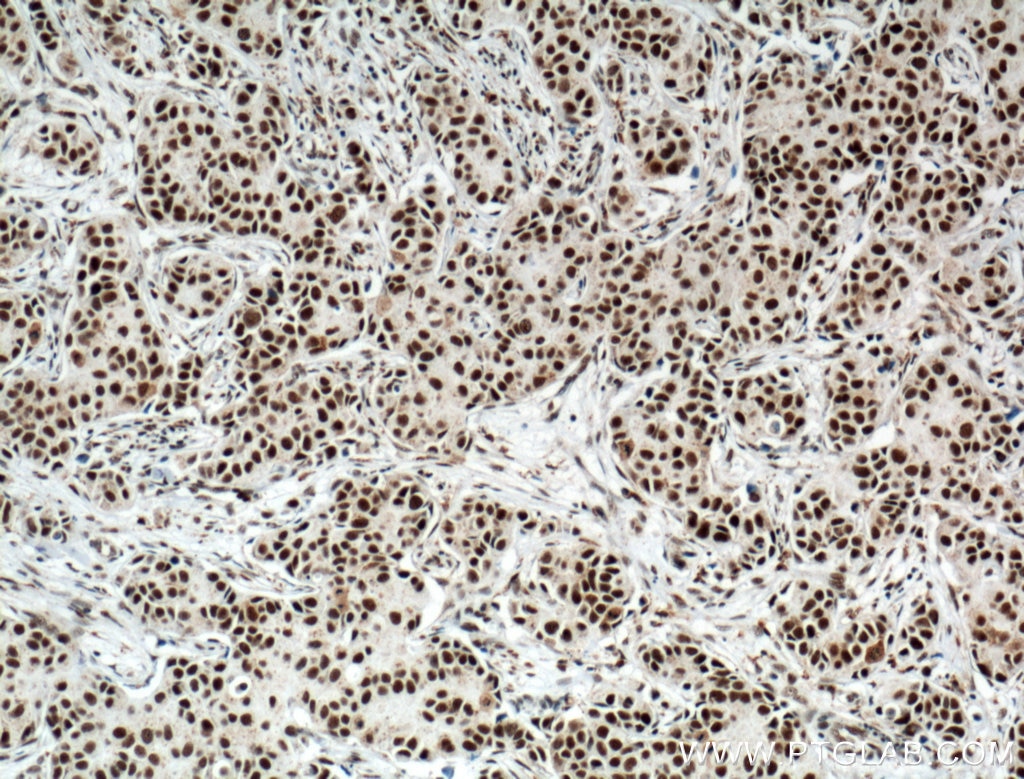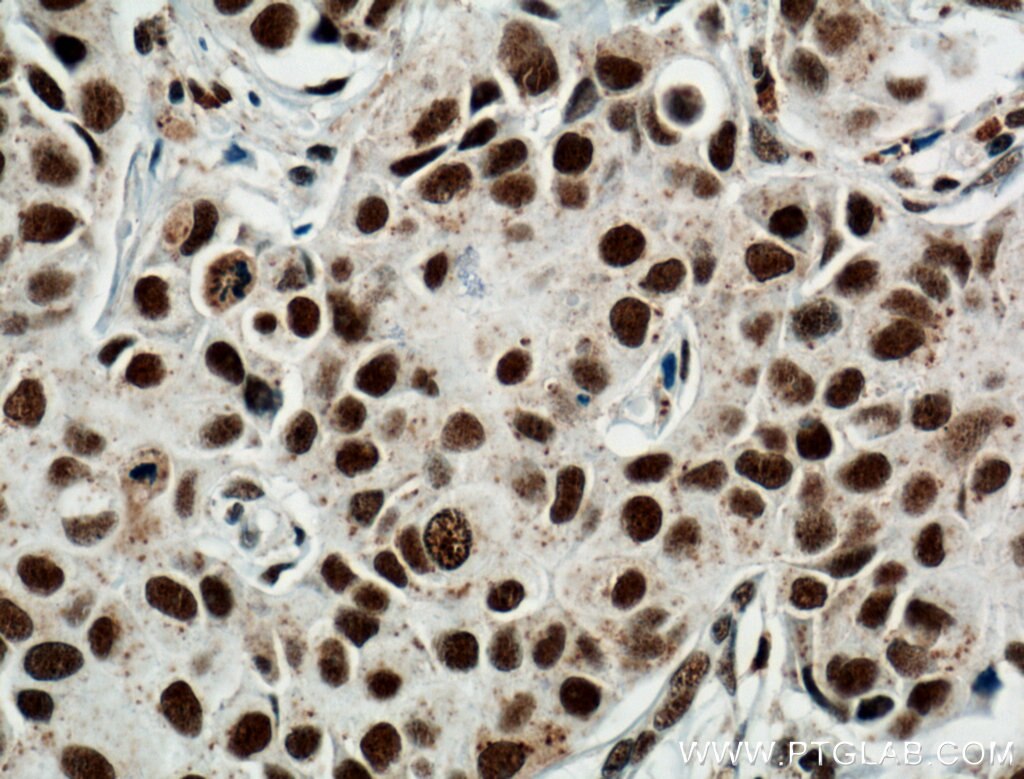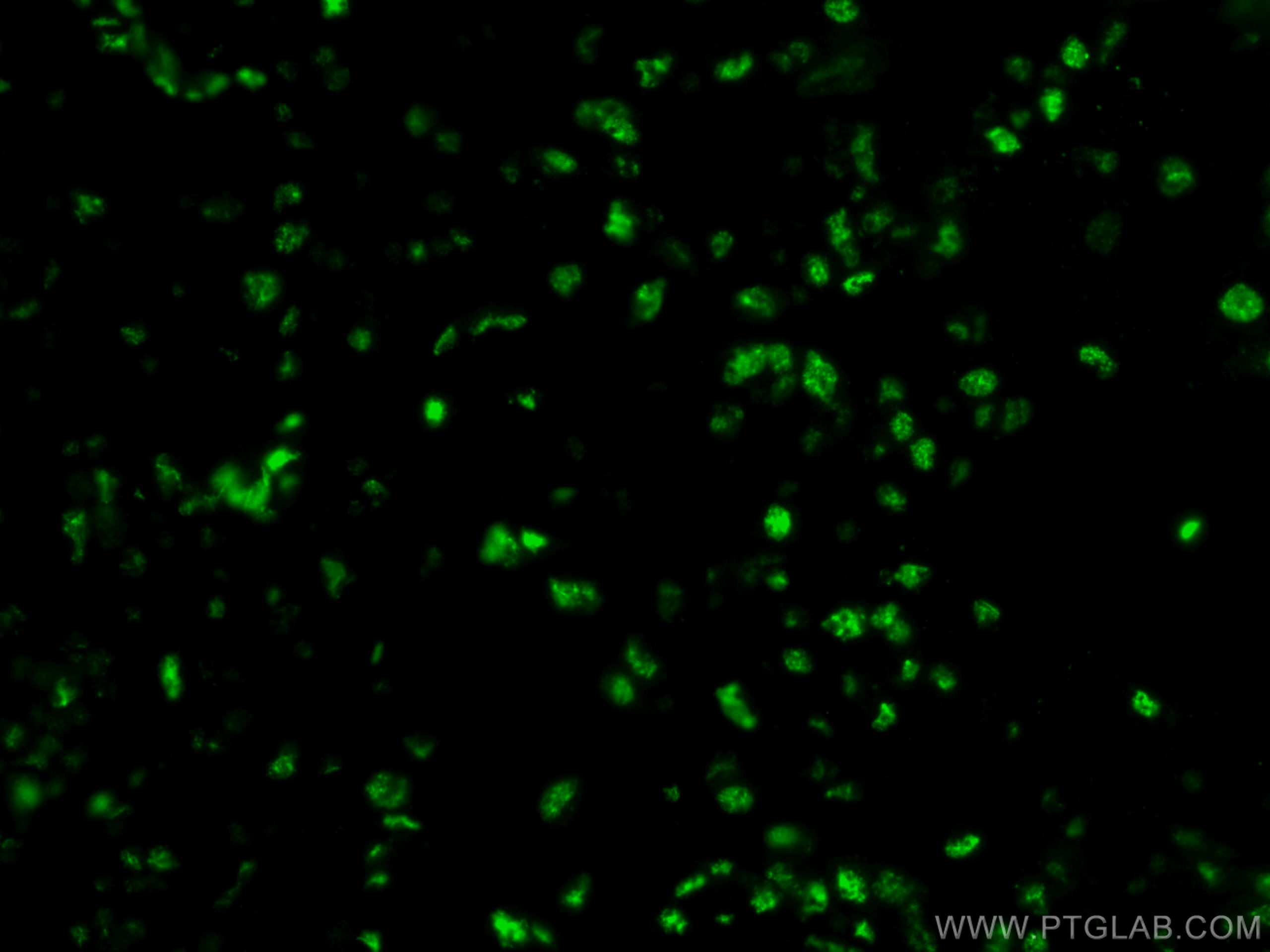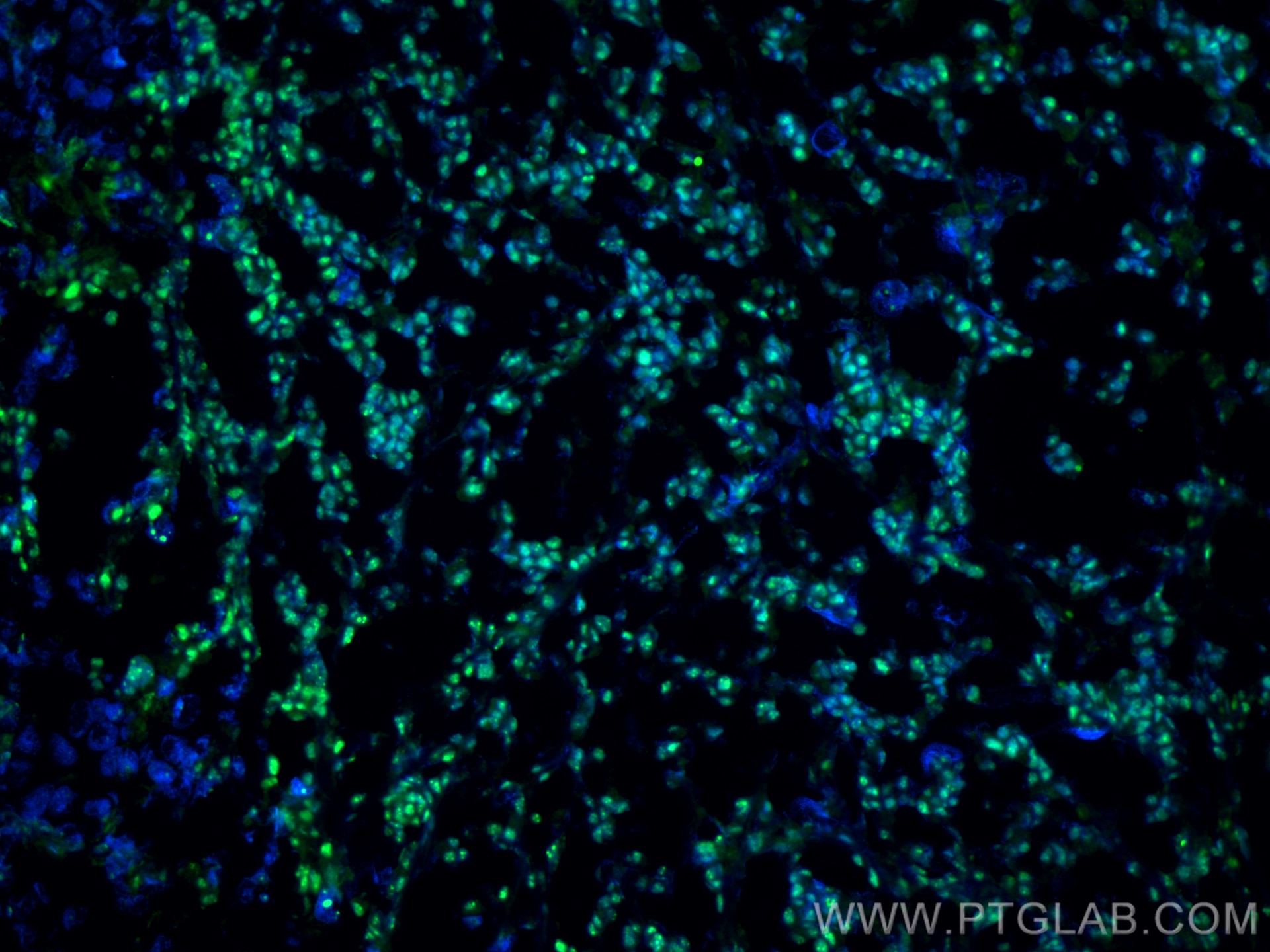- Phare
- Validé par KD/KO
Anticorps Monoclonal anti-HRPT2, CDC73
HRPT2, CDC73 Monoclonal Antibody for WB, IHC, IF-P, IF-Fro, ELISA
Hôte / Isotype
Mouse / IgG2a
Réactivité testée
Humain, porc, rat, souris
Applications
WB, IHC, IF-P, IF-Fro, ELISA
Conjugaison
Non conjugué
CloneNo.
4B4H2
N° de cat : 66490-1-Ig
Synonymes
Galerie de données de validation
Applications testées
| Résultats positifs en WB | tissu cérébral de porc, cellules Caco-2, cellules HEK-293, cellules HeLa, cellules LNCaP, cellules RAW 264.7, tissu cérébral de souris |
| Résultats positifs en IHC | tissu de cancer du sein humain, il est suggéré de démasquer l'antigène avec un tampon de TE buffer pH 9.0; (*) À défaut, 'le démasquage de l'antigène peut être 'effectué avec un tampon citrate pH 6,0. |
| Résultats positifs en IF-P | tissu de cancer du sein humain, |
| Résultats positifs en IF-Fro | mouse breast cancer, |
Dilution recommandée
| Application | Dilution |
|---|---|
| Western Blot (WB) | WB : 1:5000-1:50000 |
| Immunohistochimie (IHC) | IHC : 1:200-1:800 |
| Immunofluorescence (IF)-P | IF-P : 1:50-1:500 |
| Immunofluorescence (IF)-FRO | IF-FRO : 1:200-1:800 |
| It is recommended that this reagent should be titrated in each testing system to obtain optimal results. | |
| Sample-dependent, check data in validation data gallery | |
Applications publiées
| WB | See 2 publications below |
| IHC | See 1 publications below |
Informations sur le produit
66490-1-Ig cible HRPT2, CDC73 dans les applications de WB, IHC, IF-P, IF-Fro, ELISA et montre une réactivité avec des échantillons Humain, porc, rat, souris
| Réactivité | Humain, porc, rat, souris |
| Réactivité citée | Humain, souris |
| Hôte / Isotype | Mouse / IgG2a |
| Clonalité | Monoclonal |
| Type | Anticorps |
| Immunogène | HRPT2, CDC73 Protéine recombinante Ag2959 |
| Nom complet | cell division cycle 73, Paf1/RNA polymerase II complex component, homolog (S. cerevisiae) |
| Masse moléculaire calculée | 531 aa, 61 kDa |
| Poids moléculaire observé | 61 kDa |
| Numéro d’acquisition GenBank | BC014351 |
| Symbole du gène | HRPT2/CDC73 |
| Identification du gène (NCBI) | 79577 |
| Conjugaison | Non conjugué |
| Forme | Liquide |
| Méthode de purification | Purification par protéine A |
| Tampon de stockage | PBS with 0.02% sodium azide and 50% glycerol |
| Conditions de stockage | Stocker à -20°C. Stable pendant un an après l'expédition. L'aliquotage n'est pas nécessaire pour le stockage à -20oC Les 20ul contiennent 0,1% de BSA. |
Informations générales
Parafibromin is a product of the hyperparathyroidism-jaw tumor syndrome gene HRPT2/CDC73, a putative tumor suppressor gene recently implicated in the autosomal dominant hyperparathyroidism-jaw tumor familial cancer syndrome, sporadic parathyroid cancer, and a minority of families with isolated hyperparathyroidism (PMID: 15580289). Defects in CDC73 are causes of hyperparathyroidism type 1 (HRPT1) and hyperparathyroidism type 2 (HRPT2) as well as parathyroid carcinoma (PRTC) (PMID: 12434154). Tumor suppressor parafibromin to the transcription elongation and RNA processing pathway as a PAF1 complex- and RNA polymerase II-bound protein (PMID: 15923622). Besides, parafibromin is also involved in post-transcriptional control pathways (PMID: 16116486). Recent report has revealed that pathogenic mutation, such as CDC73 gene mutation, is able to affect histone monoubiquitination (PMID: 22021426).
Protocole
| Product Specific Protocols | |
|---|---|
| WB protocol for HRPT2, CDC73 antibody 66490-1-Ig | Download protocol |
| IHC protocol for HRPT2, CDC73 antibody 66490-1-Ig | Download protocol |
| IF protocol for HRPT2, CDC73 antibody 66490-1-Ig | Download protocol |
| Standard Protocols | |
|---|---|
| Click here to view our Standard Protocols |
Publications
| Species | Application | Title |
|---|---|---|
J Proteomics To explore the regulatory role of Wnt/P53/Caspase3 signal in mouse ovarian development based on LFQ proteomics | ||
Horm Res Paediatr A Familial Case of a Whole Germline CDC73 Deletion Discordant for Primary Hyperparathyroidism. | ||
bioRxiv Resistance of estrogen receptor function to BET bromodomain inhibition is mediated by transcriptional coactivator cooperativity |
